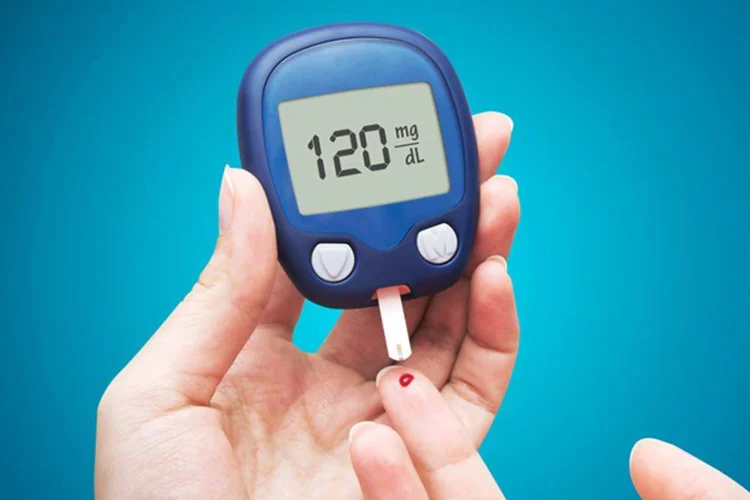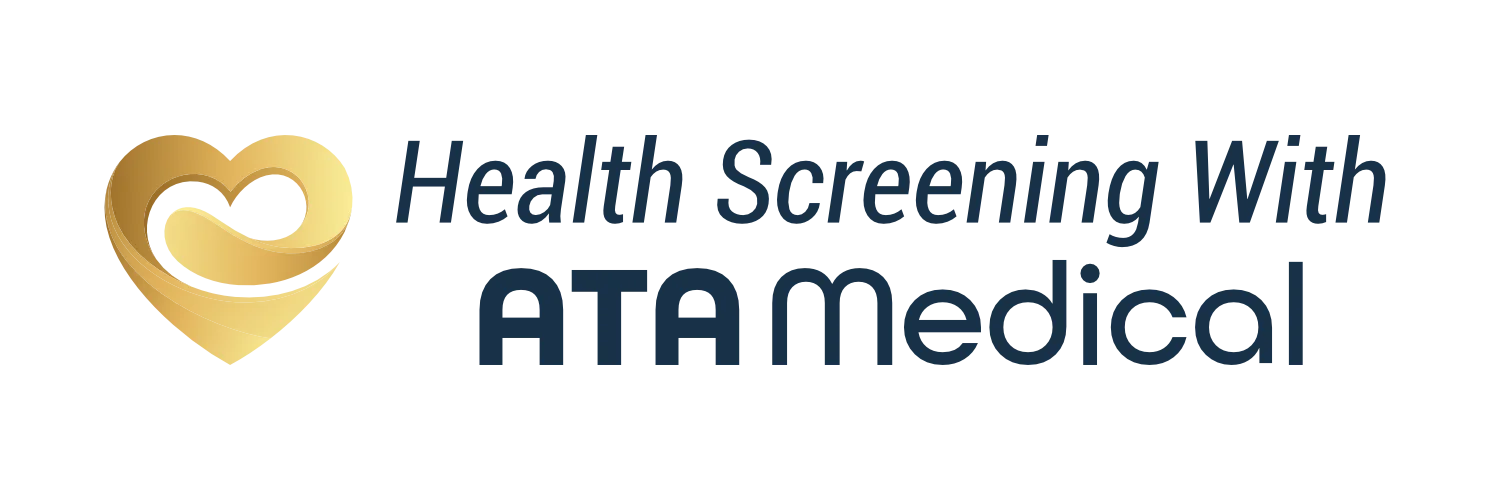- In 2022, over 1 in 3 adults in Singapore had high blood pressure, with many unaware of their condition.
- Hypertension often has no symptoms, earning it the nickname “silent killer.”
- If left untreated, it can cause serious complications such as heart attack, stroke, kidney failure, and vision loss.
- Risk factors include ageing, high-sodium diets, lack of exercise, smoking, excessive alcohol, stress, and certain medical conditions.
- Early detection through regular screening, healthy lifestyle habits, and timely treatment can greatly reduce risks.
What Is High Blood Pressure?
High blood pressure, also known as hypertension, occurs when the pressure
of circulating blood against the artery walls remains persistently
higher than normal. Over time, this excess pressure places
strain on the heart and blood vessels, increasing the risk of serious health
problems if not addressed.
In Singapore, hypertension is a significant public health concern, ranking
alongside diabetes
and high
cholesterol as one of the most common chronic conditions. In 2022,
about 37 per cent of adults aged 18 to 74 were affected, and more
than half were unaware of their condition. This is why
hypertension is often called a “silent killer”, as it can develop without
noticeable early symptoms.
What Are Symptoms of High Blood Pressure?
Most individuals with high blood pressure do not notice any symptoms until the condition has progressed significantly. In some cases, especially when blood pressure is extremely high, people may experience:
- Headaches
- Dizziness
- Blurred vision
- Chest pain
- Shortness of breath
- Nosebleeds
If hypertension is left untreated, it can lead to life-threatening complications such as coronary heart disease, stroke, peripheral artery disease, kidney damage, and retinopathy (damage to the eye’s blood vessels). Detecting and treating hypertension early is crucial to preventing these outcomes.


What Causes High Blood Pressure?
In over 90 per cent of cases, known as primary or essential hypertension, there is no single identifiable cause. Instead, it usually results from a combination of risk factors including:
- Ageing
- Family history of hypertension
- High-sodium diet
- Smoking
- Excessive alcohol consumption
- Sedentary lifestyle
- Being overweight or obese
- Chronic stress
Secondary hypertension, which accounts for the remaining cases, is linked to specific medical conditions such as kidney disease, hormonal disorders, diabetes, and high cholesterol levels.
How Is High Blood Pressure Diagnosed?
Hypertension is diagnosed by measuring the pressure in your arteries during two phases of the heartbeat:
- Systolic blood pressure – the pressure when the heart contracts and pumps blood.
- Diastolic blood pressure – the pressure when the heart relaxes between beats.

How Is High Blood Pressure (Hypertension) Diagnosed?
Blood pressure naturally fluctuates throughout the day based on factors such as physical activity, emotional state, and environmental conditions. To diagnose hypertension, readings are typically taken multiple times over a set period. Persistently high results are used to determine the stage of hypertension.
| Category | Systolic Blood Pressure (mmHg) | Diastolic Blood Pressure (mmHg) |
|---|---|---|
| Normal | < 120 | < 80 |
| High-Normal (Borderline) | 130 - 139 | 85 - 89 |
| Stage 1 Hypertension | 140 - 159 | 90 - 99 |
| Stage 2 Hypertension | ≥ 160 | ≥ 100 |
How Is Hypertension Prevented and Managed?
Hypertension can often be prevented or managed by adopting heart-healthy lifestyle habits that help maintain blood pressure within a healthy range. These include:
- Reducing salt intake
- Eating a balanced diet rich in fruits, vegetables, and whole grains
- Engaging in regular physical activity
- Limiting alcohol consumption
- Managing stress effectively
- Avoiding tobacco use
For those already diagnosed with hypertension, management often requires a
combination of lifestyle adjustments and prescribed medication. Common
medications include ACE inhibitors (Angiotensin Converting Enzyme
inhibitors), beta-blockers, and calcium channel blockers.
Regular home monitoring of blood pressure helps track progress and assess
whether treatment is working effectively. Based on these readings, your
doctor may adjust medications or recommend lifestyle changes to maintain
optimal control.

Disclaimer: The information provided here is intended for general educational purposes and should not replace professional medical advice. Always seek the guidance of a qualified healthcare provider for personalised diagnosis and treatment.
Summary
Hypertension is a condition where blood pressure remains consistently above healthy levels, often without clear warning signs. If left unmanaged, it can lead to serious complications such as heart attack, stroke, and kidney failure. Early screening, healthy lifestyle changes, and appropriate treatment can greatly reduce these risks. If you suspect you may have high blood pressure or belong to a high-risk group, consult a doctor promptly for assessment and management.
Why Choose Us?








Navigate Easy With Google Maps
Health Screening Singapore (Anson House)
Nearest MRT: EW15 Tanjong PagarHealth Screening Singapore (Camden Medical Centre)
Nearest MRT: TE13 Orchard BoulevardHealth Screening Singapore (CPF Jurong Building)
Nearest MRT: NS1/EW24 Jurong EastFrequently Asked Questions (FAQs)
In Singapore, high blood pressure is generally defined as readings consistently at or above 140/90 mmHg. The first number, systolic pressure, measures the force when the heart contracts, while the second, diastolic pressure, measures it when the heart rests between beats. Blood pressure should be assessed over multiple readings to confirm diagnosis. It is advisable to consult a doctor for proper diagnosis and monitoring if your readings are elevated.
There is no safe or reliable way to lower blood pressure instantly without medical supervision. Sudden drops can be harmful. Short-term measures such as resting in a quiet environment, practising slow breathing, or avoiding stressors may help mildly reduce readings. However, sustained control requires long-term lifestyle changes and, if necessary, prescribed medication. It is advisable to consult a doctor for appropriate management.
In Chinese, hypertension is called “高血压” (gāo xuè yā), which translates literally to “high blood pressure.”
High blood pressure can be reduced through a combination of healthy lifestyle habits and, when needed, medication. This includes limiting salt intake, eating a diet rich in fruits and vegetables, engaging in regular exercise, managing stress, avoiding tobacco, and limiting alcohol. Medication may be prescribed if lifestyle measures alone are insufficient. It is advisable to consult a doctor to develop a plan tailored to your individual needs.
A blood pressure reading of 140/90 mmHg falls within the threshold for Stage 1 hypertension and is not considered normal. While a single high reading does not confirm hypertension, repeated results at this level warrant further evaluation. It is advisable to consult a doctor for repeat testing, assessment of risk factors, and guidance on possible lifestyle changes or treatment.
Drinking water helps maintain proper hydration, which supports healthy blood pressure regulation, but it does not provide an immediate solution for hypertension. While dehydration can sometimes lower blood pressure, adequate hydration is important for overall cardiovascular health. Effective management of high blood pressure typically involves lifestyle changes and, if necessary, medication. It is advisable to consult a doctor for personalised guidance on managing hypertension.
Lying down may temporarily help you relax, which can slightly lower stress-related blood pressure spikes, but it does not treat hypertension. For consistently high readings, lifestyle changes and medical management are required. If blood pressure is extremely high or accompanied by symptoms such as chest pain, shortness of breath, or vision changes, seek urgent medical attention.
High blood pressure is often linked to a combination of factors, including inherited traits, lifestyle habits, and underlying medical conditions. A high-salt diet, lack of physical activity, smoking, excessive alcohol intake, being overweight, kidney disease, hormonal disorders, and diabetes can all contribute to its development.
Foods high in sodium, saturated fat, and added sugars can worsen high blood pressure. This includes processed meats, salty snacks, fried foods, fast food, and sugary beverages. Excessive intake of these items can increase fluid retention, strain blood vessels, and contribute to weight gain, further elevating blood pressure.
There is no immediate cure for high blood pressure, and rapid changes may be unsafe. Short-term measures such as resting in a calm environment and practising slow breathing may help reduce stress-related spikes, but long-term control requires consistent lifestyle adjustments and, if necessary, medication. It is advisable to consult a doctor to create an appropriate and effective treatment plan based on your individual health profile.
Fruits rich in potassium, such as bananas, oranges, and kiwis, can support healthy blood pressure by helping balance sodium levels in the body. Other nutrient-dense fruits like berries and pomegranates may also promote heart health. However, no single fruit alone can control hypertension, and a balanced diet is essential. It is advisable to consult a doctor or dietitian for personalised nutrition advice.
High blood pressure often causes no noticeable symptoms, which is why it is sometimes called a “silent” condition. When symptoms do occur, they may include headaches, dizziness, blurred vision, chest discomfort, or shortness of breath, usually when blood pressure is severely elevated.
Blood pressure readings of 180/120 mmHg or higher are considered dangerously high and may signal a hypertensive crisis, which increases the risk of stroke, heart attack, and organ damage. If readings are at this level, especially with symptoms like chest pain, vision changes, or shortness of breath, seek emergency medical care immediately.

